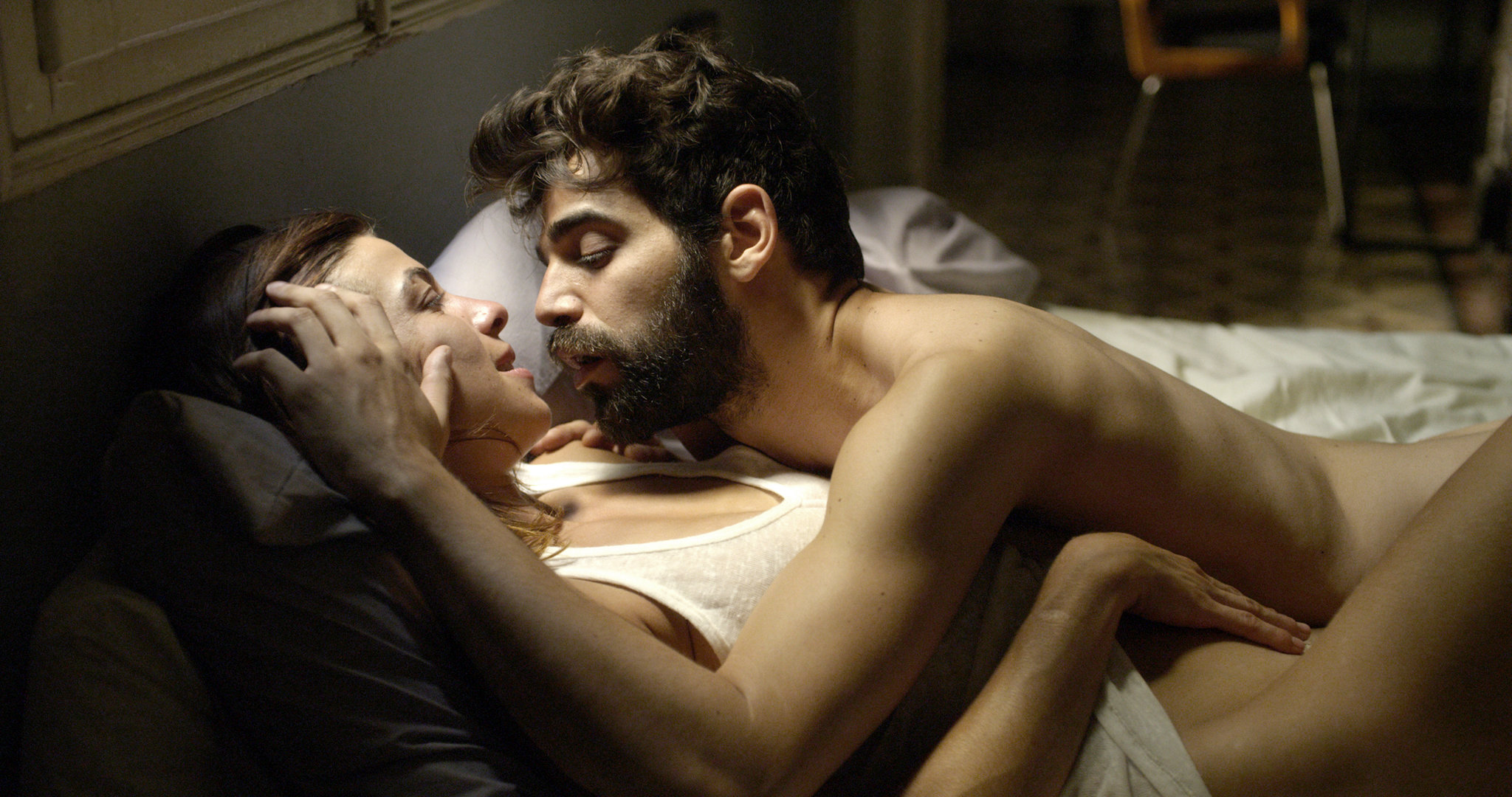By Chlotrudis Independent Film Society
Rating: 5 cats
Director: Carlos Marques-Marquet
Starring: David Verdaguer | Natalia Tena

Country: spain
Year: 2015
Running time: 99
IMDB: http://www.imdb.com/title/tt3114132/combined
Kyle says: “10,000 KM is a film I do not want to belittle with faint praise, especially since there are so few titles out there worth seeing at all. So I apologize in advance if I write that this is one of only two or three movies so far this year that I would recommend as essential — for the talent of a brilliant young Spanish director, for two astonishingly incisive and memorable performances, and for young crafts people of inspiring capabilities. It’s enough to restore belief in the future of this art form, even if you pause at the information that its alternate title is the off-putting LONG DISTANCE, presumably because some potential audience members will not understand either what the title means or what a kilometer is.
“The film commences with a lengthy scene of two attractive passionately involved young people in their Barcelona apartment having sex. Although they are trying to make a baby, these two are clearly enjoying themselves — perhaps Sergi (David Verdaguer) at bit more than Alex (Natalia Tena). He talks about how beautiful and smart their kids will be and how many they will have. Their relationship seems as good as it gets. While David showers, Alex checks her email, and tells him over breakfast that she has been awarded an all-expenses-paid photography residency in Los Angeles. For a year. He’s hurt she knew and didn’t tell him, she’s hurt that he’s resisting joy about her astounding career opportunity, he decides she ought to accept, she isn’t so sure.
“10,000 KM is about the distance between two young people in love, both geographically on opposite sides of the world, and emotionally in a day when we relate more closely by pressing keys on an electronic device than we do by physically touching each other. The voyage is not only between Barcelona and Los Angeles, but also over a period of about 200 days, starting with her excitedly sharing photos and videos of her apartment on Sunset Boulevard, and his instructing her on cooking procedures. All by computer. Gradually they stare at each other on the screen with little to say, as the daily boredom of repeated activity is manifested. Alex’s neighborhood is filled with empty landscapes devoid of humanity; she wants to recreate a famous photograph but is unable to, because the area has changed too much. The white walls of her apartment start to feel alien to her and also to look alien to David on
the screen.
“After two months Alex wryly observes, ‘Sometimes I wonder what I’m doing here’, but David is the one who looks sad. At three months, they’re toasting each other with glasses of wine, and making out with their screens amid pixilated imagery. When they get naked for each other, Alex purrs, ‘Tell me what you’d do to me if I was there’, and David murmurs, ‘I’d make you …… dinner!’ The inevitable breakdown in communication can be seen coming far in advance, but director Marques-Marcet makes sure we are given all the cinematic information we require to care deeply about Alex and David. Which we do. He creates a particularly dazzling sequence of difficult emailing amid a blizzard of deletions, as one attempt at poetry or sensitivity after another fails
completely. David finally presses Send after the plaintive, ‘Alex, where are you?’
“Halfway through the yearlong residency, Alex’s photography is sharp, energized, full of life, and beautifully observed. David shows up at Alex’s apartment unannounced. They touch and embrace, but they are virtual strangers. They attempt to reconnect with a bottle of whiskey and a bout of fucking, after which they have nothing to say to each other. The director’s close-ups of the actors’ faces — registering the range of feelings of two humans who have done nothing more than their best, and ultimately do not know any more than the audience sharing their final encounter — are worthy of Ingmar Bergman at his best in the mid-1970s. The end titles’ acknowledgement of Internet companies and logos used throughout the film looks just like the dock on my laptop, and probably yours. At the Q & A afterward, director Carlos Marques-Marcet, whose first feature this is, was fairly jumping out of
his skin with enthusiasm and excitement to have made a movie about relationships nowadays, particularly one in which the woman makes the relationship-altering career choice instead of the man. Special kudos go to cinematographer Dagmar Weaver-Madsen for her filming of one of the great sex scenes in contemporary cinema, as well as for canny uses of depth of field and ambiguity of computer screens, as in a masterful scene of David’s face and Alex’s photos layered in such a way as to almost literally show the handwriting on the wall of their relationship, as one way of life passes on and another takes its place. 5 cats
“Seen Tuesday, July 7, 2015, at the Titus 2, Museum of Modern Art, New York.”
